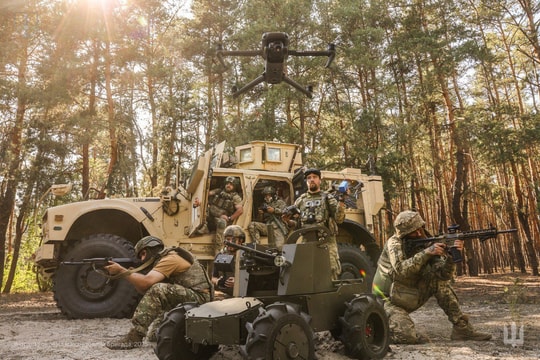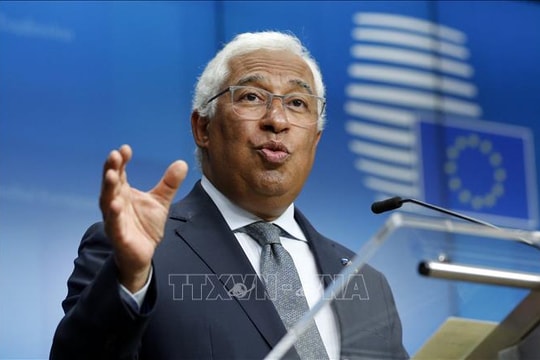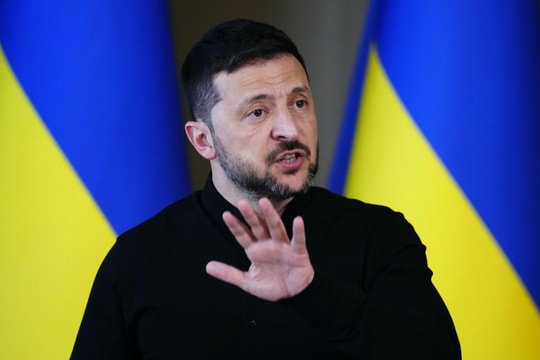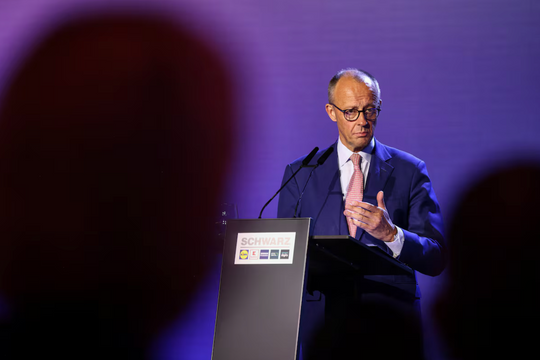Europe suffers bitter consequences in sanctions war due to underestimating Russia
Even though they were the ones imposing the sanctions, the price the EU countries had to pay seemed to be greater than Russia - the country they tried to isolate.
Europe gets bitter fruit in the sanctions war
The West sees its key achievements in confronting Russia as being able to quickly rally unity in the war in Ukraine, deter Russia with the harshest sanctions and provide billions of dollars in weapons to Ukraine. While politicians insist the West will continue to do so, experts say economic problems will erode that unity.
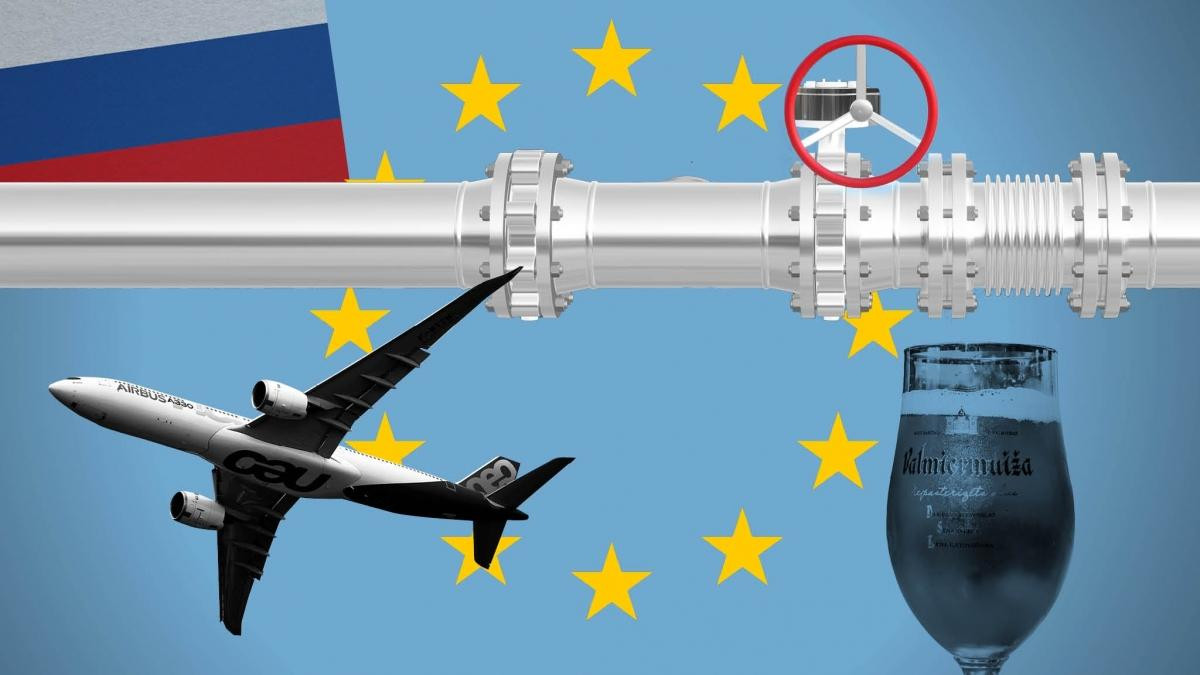 |
| Illustration: Financial Times |
Europe is being rocked by a series of problems, from rising energy prices to gas rationing, cuts to aid for the poor and the threat of economic collapse. Disagreements over aid to Ukraine have partly caused the collapse of Italy’s coalition government. The hard-won transatlantic unity that diplomats have worked so hard to build is also in danger of collapsing.
These signs of pessimism have surprised many Americans, who have long believed that the costs of war would be minimal and whose media coverage has been optimistic about Ukraine’s prospects for victory. Most analysis has focused on Russia’s weaknesses, such as its economic crisis, military setbacks, and political isolation. However, the idea of Russia’s strategic defeat is increasingly unrealistic as the balance of economic and political support tilts in Moscow’s favor. While the Javelin missiles and HIMARS rocket artillery systems have been effective, they have not changed the course of the war in Ukraine.
The West believes that Russia, an economy smaller than Italy, will not be able to withstand the pressure of sanctions, but Moscow is not competing to catch up with the Western economy but focusing on producing enough weapons and mobilizing forces to deal with the Ukrainian forces supported by the West.
While the West predicted sanctions would collapse Russia’s currency, the ruble is stronger than ever. The Russian economy could shrink by 6% or more in 2022, but that is still far less than Ukraine’s 45%. Russia’s ability to endure a 6% contraction is even greater than many European countries’ ability to endure a 3% contraction.
What Europe is facing now, from gas shortages to soaring commodity prices, is reminiscent of what the continent experienced during the Covid-19 pandemic in 2020-2021 or the financial crisis in 2008-2009. The issue here is not a measure of economic or military power, but the ability of Russia, Ukraine and the West to pay the price of war. And Moscow has shown greater flexibility and endurance than expected.
The West underestimated Russia.
Some observers believe the West underestimated Russia and overestimated its influence. In 2014, when Russia annexed Crimea, President Putin’s approval rating rose to more than 80% despite the harsh sanctions Russia faced as a result of the move. Western observers believed the sanctions would weaken the Russian economy, especially the oil industry, which accounts for the bulk of Russia’s budget. However, Russia quickly completed gas pipelines to China and Turkey, built a new liquefied natural gas terminal in Serbia, and quickly built major roads and railways to Crimea.
The West also underestimated Russia’s resilience. To be fair, the sanctions imposed by the West over the war in Ukraine were unprecedented. More than 1,000 people and their assets were sanctioned. Exports to Russia of everything from high-tech to luxury goods were halted, while hundreds of companies ceased operations in the country. More seriously, Russian banks were cut off from the international payment system SWIFT, and Russia’s reserves of more than $600 billion were frozen.
The West thought it had strangled Russian trade, but Moscow had been prepared for it. A new export payment system and huge cash reserves helped Russia survive the wave of sanctions more easily than expected. After a period of falling prices, the ruble quickly recovered thanks to a clever adjustment of interest rates and capital controls.
The ruble has also benefited from rising oil prices and Moscow’s insistence that customers pay in rubles. While some customers have refused, major importers such as Germany and Italy have been quick to comply. While Europe has tried to use the “stick” against Russia, their dependence on Russian oil and gas has shown that Moscow is, in fact, the “handle”.
Now, as the weather gets hotter, demand for gas in Europe is rising, both for electricity generation and for air conditioning, and to replace the reduced hydroelectric power due to drought. Another economic blow to Europe is the Covid-19 pandemic lockdown in China, which has disrupted supply chains. Meanwhile, illegal immigration into Europe has increased by about 80% compared to last year. The EU also estimates the cost of rebuilding Ukraine to be at least $1,000 billion and Ukraine's burden on Europe could be equal to 10% of the EU's annual GDP.
The majority of European public opinion on the war in Ukraine has changed, with more and more people disapproving of the government's policy of supplying weapons to Ukraine instead of urging Kiev to negotiate a ceasefire.
So far, EU and NATO officials have largely ignored those comments and called for patience in efforts to defeat Russia.
Divided in support for Ukraine
Tensions exacerbated by the influx of migrants, rising nationalism, and disputes over burden-sharing of war could destroy European unity, weaken transatlantic ties and support for Ukraine.
According to an organization that monitors support for Ukraine, new international pledges for the country “dried up in July,” raising concerns about the West’s continued commitment to support Ukraine. Ukraine received only about 1.5 billion euros ($1.51 billion) between July 2 and August 3. During this period, “no major EU country made significant new pledges,” despite fierce fighting between Russian and Ukrainian troops.
The “game of patience” will continue around the world as the war in Ukraine drags on, according to András Kosztur, senior research fellow at the Institute for 21st Century Studies. Winter will be the deciding moment in how long the EU can bear the burden of war and sanctions, he said.
The expert believes that Russia can enter the winter in a more favorable position. Meanwhile, Ukraine continues to be militarily and financially dependent on the West. Ukraine's energy system is vulnerable to Russian attacks and the country has lost control of its largest power plants and a significant part of its energy resources.
"The EU is heavily dependent on Russian energy, which cannot be replaced, and if replaced, the EU will have to pay a significant price."
The expert also said: "The energy crisis, inflation, the risk of recession and the subsequent political crises have shaken the already shaky stance of European countries while the US seems unwilling to bear the entire cost of the war in Ukraine alone."
Europe has now realized that while focusing on Russia’s weaknesses, it also needs to assess its own vulnerabilities and threats. Providing more and more weapons to Ukraine may help it win, but it may also cause more destruction, and the burden of that destruction will fall not only on Ukraine but also on the EU./.

